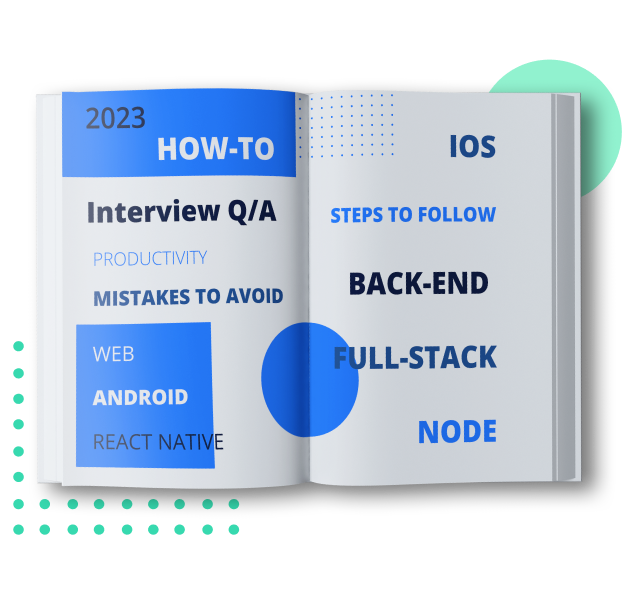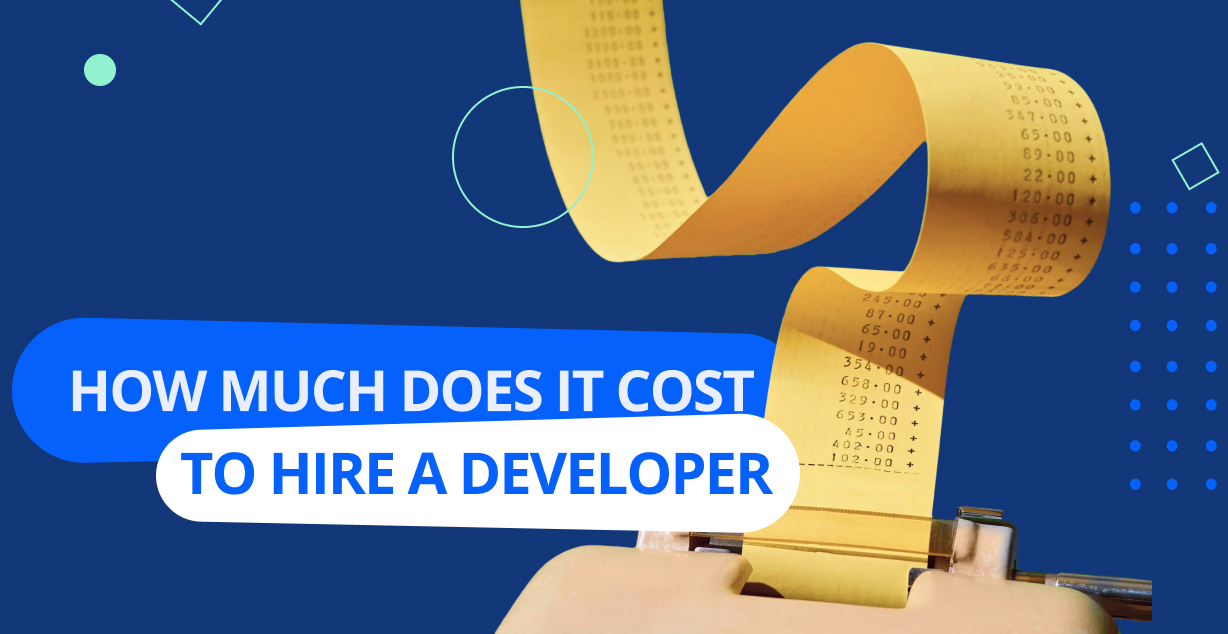The level of the developer directly impacts the hourly rates and tasks this specialist can fulfill.
Trainee developer level
The trainee or entry-level developer – a person making the first steps in software development.
The main goal at this stage is to get the first practical experience, familiarize yourself with the routine work of a developer, and understand if a person likes it.
An experienced mentor who would answer all the questions and correct the mistakes is required for a trainee.
When to choose: Hiring trainee developers is also an investment in the future, therefore they shouldn’t be considered as employees who would show results fast.
The positive side is that you can tailor a specialist to your particular needs. This specialist will ideally know development standards (code review practice for instance) established in your company.
At the same time hiring a more experienced developer and retraining to meet new standards can cause difficulties.
Junior developer level
The Junior level developer is more experienced compared to a trainee and should be able to perform tasks more efficiently.
Having tried to work on a real project for the first time, Juniors get excited and motivated often more than more experienced developers. This is their main advantage.
The flip side of this is their impatience which in combination with a lack of knowledge often results in overlooking simple solutions and burnout in Junior developers.
To avoid this it is necessary to stream the energy of a Junior into something useful – studying new technologies and developing best practices.
He should be permanently involved in the team’s work to observe how more experienced colleagues accomplish the tasks.
When to choose: Similar to trainee developers more likely it’s an investment in the future.
Middle developer level
After several years of training, Junior developers have sufficient knowledge to perform most of the tasks independently. This is the moment when they become Middle developers.
However, they still lack experience in independent work. They find it difficult to set priorities for the project and reflect on their mistakes. Therefore, they need minimal support from more experienced colleagues.
In most cases, Middle developers develop parts of an application that are subsequently transferred to senior developers.
When to choose: Hiring middle developers is a good option if you need quality performance and your budget is not big enough to hire a senior. Keep in mind that at the same time, you need to have a specialist on your staff who will guide a middle developer and ensure minimal assistance.
Senior developer level
Senior developers possess deep knowledge and experience, can reflect on made mistakes, and learn from them. All this allows them to work independently.


While fulfilling the tasks, they keep business goals in mind and think about how to address them by utilizing the software.
The combination of knowledge, experience, and deep understanding of the industry helps seniors intuitively find non-obvious solutions to problems. They can think ahead about the issues a system might face in the future and design it to avoid potential problems.
Beyond that, they can manage the team’s work and teach less experienced colleagues.
At this level, developers are no longer treated classically as specialists who are engaged in coding only.
When to choose: If you need a specialist who can solve issues independently, teach your employees, and find the best technical solutions, the senior developer is the best choice for you.
Lead developer level
As the level of the developer grows, the roles played on the project become more distinctive:
- Develops software;
- Is in charge of product development;
- Manages the team.
Combining these roles is quite complicated, therefore at some moment, a developer needs to decide where to put more effort.
If the focus is on:
- What the team produces – this is a Product Manager;
- How it produces it – this is a Tech Lead;
- Who works in the team and their development – this is a Team Lead.
The combination of these roles depends on the company’s specifics, its needs, and the conditions it is in. Either way, a Lead developer should be versed in 3 aspects:
- Development – to support team members in addressing various challenges;
- Architecture – to holistically understand how the whole system works, how it is deployed and managed;
- Leadership – to effectively educate and manage the team.
Usually, each role is played by different people. Thus, a Product Manager, Tech Lead, and Team Lead can work in the same team.
When to choose: If you need a person who will focus more on strategic product development, will form its technical vision, design architecture, and will optimize it, a Lead developer is the best match for you.

















